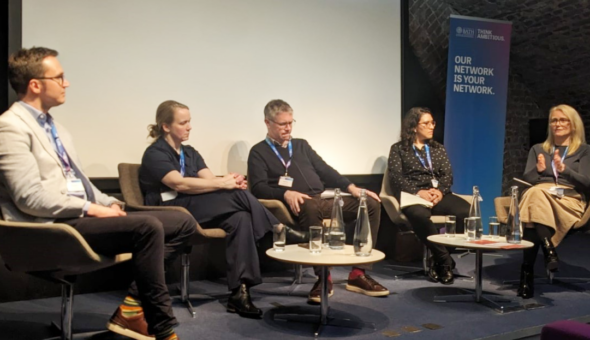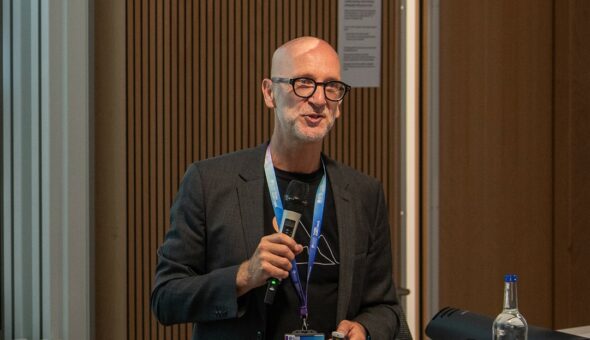Throughout October, we’ll be hosting a Crossing Boundaries takeover, exploring issues around modern slavery to mark Anti-Slavery Day on the 18th.
We recently brought together the largest ever collection of researchers of business and modern slavery at the 2023 Crossing Boundaries conference. Professor Andrew Crane explains his top five takeaways about what researchers are telling us we need to do differently.
In my last post, I listed what thought were the big five problems that researchers are seeing in the field of business and modern slavery. In this post, I am going to concentrate on some of the main areas of optimism where new ways of thinking, working and researching may be offering the possibility for improvements in how modern slavery in business is tackled.
- Enhancing legislation
If, as research suggests, transparency in supply chain regulation is failing, what are the alternatives? Business researchers appear to be generally supportive of more mandatory forms of legislation and are cautiously optimistic about the direction of travel towards human rights due diligence and import bans.
These impose increased corporate accountability for assessing and disclosing risks, and require greater monitoring of the effectiveness of corporate practices to tackle modern slavery. Concrete research evidence on their effectiveness and the response of business is still limited, however.
- Improving worker voice
Worker voice has become something of a buzzword in modern slavery, although research has suggested that it is often used instrumentally to further corporate rather than worker interests. Nonetheless, new approaches are emerging that shift the focus from simple worker inclusion to a broader sense of worker recognition.
As Dr Amy Benstead, Dr Victoria Stephens, Erica Charles, Dr Dane Lucik, Dr Helen Gorowek and Jennifer Wascak – authors of the study that was awarded the best paper on modern slavery and supply chains at the 2023 Crossing Boundaries conference – argued, we need to move from thinking about worker voice just in terms of better feedback tools and technologies to improving how workers’ voices are actually heard and acted upon in addressing injustice.
- Utilising data science
There have been substantial limits to the quality and quantity of data available to understand and improve businesses’ responses to modern slavery, as well as a lack of sophistication in the methods used. However, new data and methods are being successfully applied, including some promising developments in data science.
Researchers are using AI to identify risky jobs, applying system dynamics methods to explore the effectiveness of different interventions, and developing new methods to estimate the nature and extent of exploitation among different occupational groups. Of course, any method is only as good as the data it relies on. Therefore, research efforts to collect and analyse more worker-centric data are very promising in helping to realise the potential of more sophisticated methods.
- Building engagement
With companies generally lacking in the kind of deep, long-term engagement necessary to tackle modern slavery, it is essential to uncover new ways of prompting and sustaining engagement of key stakeholders.
Some researchers are looking at how to engage front-line managers more, for example through photo-elicitation techniques. The Objective photo exhibition at the Crossing Boundaries conference also used visual imagery to engage participants in the stories of modern slavery survivors. Other researchers are taking a very different path and exploring how data science tools can be used to engage investors in modern slavery issues. Clearly different stakeholders in different contexts need different ways and tools to engage them. Research is just getting started on uncovering these.
- Mapping vulnerabilities
Finally, a key way that companies deal with modern slavery is in terms of the risks it poses to them. For example, companies are wary of the reputational risks posed by the threat of modern slavery in their supply chains and even of the risk to their share price if malpractice is uncovered. While this way of thinking has its value, researchers are also pointing towards a very different way of thinking about the problem that does not start with the risks to the business but with the risks to potential victims.
As one of our keynote speakers, Professor Mark Stevenson, suggested, we need to move from mapping risks to mapping vulnerabilities in supply chains. There is a considerable body of research underway looking at how to assess and map these vulnerabilities, and the big challenge will be to connect the dots between these vulnerabilities and the core components of companies’ supply chains and business models. There is still a lot of work to do.
Respond



